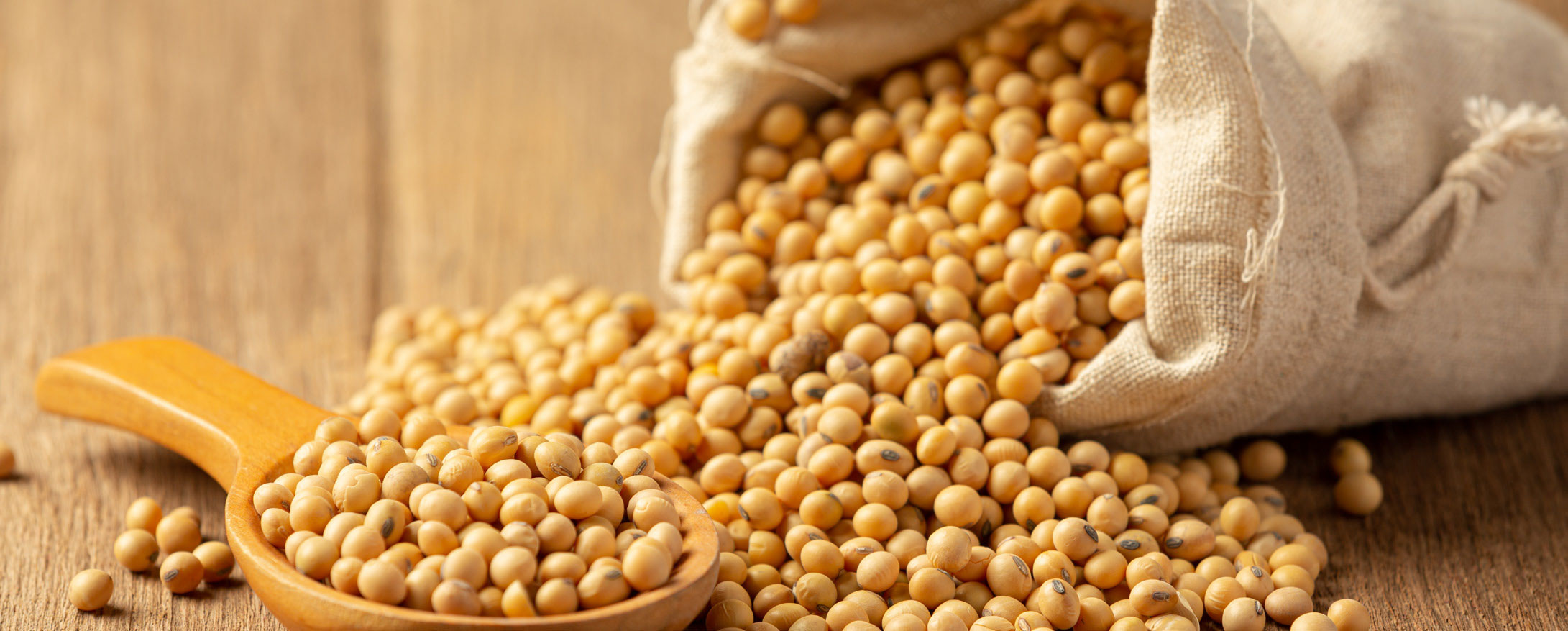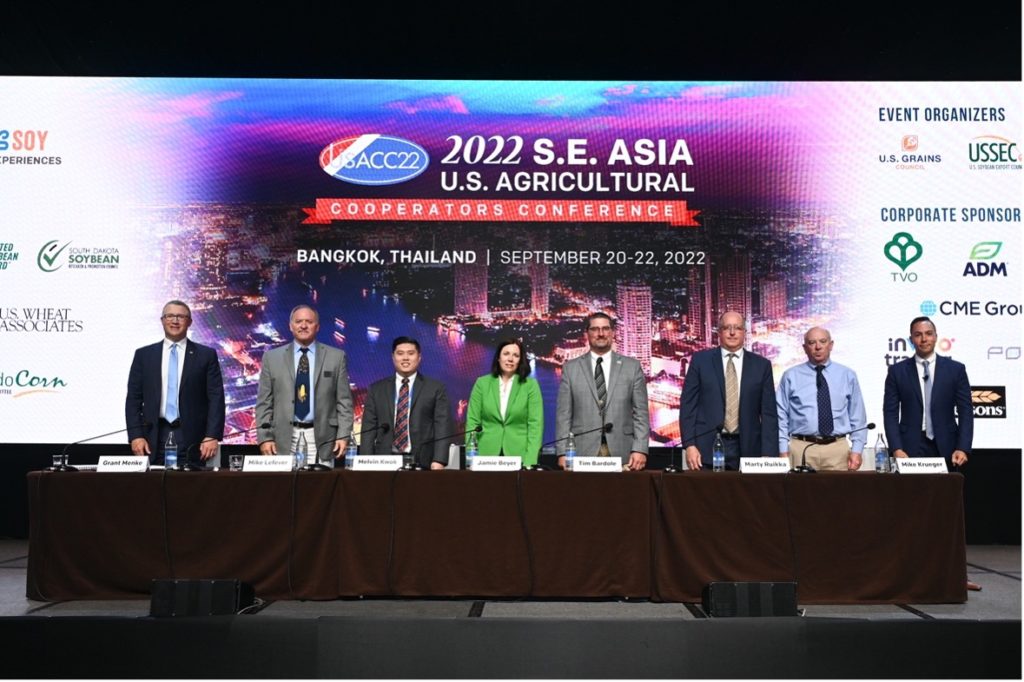Resiliency in Food is Key Takeaway During Southeast Asia Cooperators Conference
- Category:
- Event followup
- Sustainability

Food stability, security and sustainability were top of mind for the over 300 industry participants who gathered at Together in Trade, the 2022 Southeast Asia U.S. Agricultural Co-operators Conference in Bangkok, Thailand, last month.
Jointly organized by the U.S. Soybean Export Council (USSEC) and the U.S. Grains Council, with support from the soy checkoff, the event is meant to tackle trade topics head on through lively conversations that are curated through fireside chats, panel discussions and networking events. Organizers saw the largest turnout for the event since its inception in 2004, demonstrating a sense of excitement, yet urgency, in the air from industry participants, after meeting virtually for two years.
“We created this event as a platform, a meeting of the minds of agribusiness and trade, to come together, in person, and get back to business, said Timothy Loh, Regional Director, Southeast Asia and Oceania at USSEC. “We wanted to bring back normalcy. With the huge turnout, insightful dialogue and exchange of ideas, we have really exceeded our expectations.”
Top of mind across markets were the current prices of corn, soybeans and wheat. Jim Sutter, USSEC CEO, discussed the factors largely contributing to volatility and price surges, the 3 C’s: COVID, climate change and conflict. But, also noted that they are also driving the pace towards sustainability and sustainable practices for global agriculture and agribusiness.
Sustainability was a recurring theme throughout, with the need for sustainability to underpin the future of food production and feed more people with fewer resources resonating across audiences.
As sustainability is becoming increasingly critical and a passport for businesses to operate, certifications have proven valuable in stemming the challenge of greenwashing. They also provide consumers with greater confidence and a peace of mind that the products they are consuming are truly contributing to the sustainable development of the planet and society as a whole.
Lukas Manomaitis, USSEC’s aquaculture technical director for Southeast Asia, noted that certifications have benefitted the industry overall by defining long-term approaches. He noted that today’s aquaculture is in stark contrast to the aquaculture industry in Southeast Asia over two decades ago where they were producing with short-term approaches without paying attention to biodiversity, sustainability, and food safety.
While sustainability remains important for all in the industry, the importance of addressing nuances related to equitably implementing sustainability across the region was also discussed. Dr. Scott Hutchins, former Deputy Undersecretary, US Department of Agriculture (USDA) underscored the need to ensure economic sustainability when implementing sustainable practices.
“Farmers can’t think green if they’re in the red. We have to make sure it’s viable for both the small and large farms, and ensure we design these systems to be more efficient and effective,” he said.
Ultimately, participants at the event shared positive sentiments on the value of bringing key stakeholders across the food value chain together to seize business opportunities and drive synergies with one another.
Against the backdrop of a changing world and disruptions, participants agree that strong partnerships –remain key to a more stable, secure and sustainable business environment for agriculture.

Partially funded by U.S. Soy farmers, their checkoff and the soy value chain.